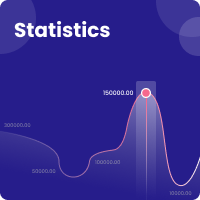Technoscience and Rationality in the contemporary world
Abstract
In the contemporary world, science is intimately linked to technological advances. To a great extent, producing science requires having access to resources and appropriate instruments for carrying out research. These resources and instruments do not always involve large amounts of funding, but they have to be at the head of technological advancement. Accordingly, a close relationship between two fields of knowledge that traditionally have been understood as independent has been created — due to historical processes and various rationalities. However, not all current science is techno-science; theoretical science continues to have validity and occupies a central place in the production of knowledge. In turn, not all technology is applied science, being that there is also a technological thought that has its own coefficients of rationality. To better understand the phenomenon of techno-science, which had its heyday in the 1980s, is necessary to understand that science is not guided by just one dominant argument, but that in its historic passage it has generated various rationalities that open up new perspectives and broaden the horizons of knowledge.References
Comte, A. (1996) Discurso sobre el espíritu positivo.Barcelona, Altaya.
Echeverría, J. (2003) La revolución tecnocientífica. México, FCE.
García, J. C. González. López, J. A, Lújan, M. Martín, G. Osorio, C y Valdés, C. (2001) Ciencia, tecnología y sociedad: una aproximación conceptual. Madrid, Organización de Estados Iberoamericanos para la Ciencia, la Educación y la Cultura.
González, G.M.I. López, J.A. y Luján, J. L. (1996) Ciencia, tecnología y sociedad: una introducción al estudio social de la ciencia y la tecnología. Madrid, Tecnos.
Lecourt, D. (1996) Contre la peur. Paris, P.U.F.
Lecourt, D. (2001) La philosophie des sciences. Paris, P.U.F.
Lecourt, D. (2003) Humain Post Humain. Paris, P.U.F.
Latour, B. (1992) Ciencia en acción. Barcelona, Labor.
Quintanilla, M. Á. (2000) Técnica y cultura. En: Revista Teorema. Vol XVII/3.
Filosofía de la tecnología. Organización de Estados Iberoamericanos para la Ciencia, la Educación y la Cultura. Edición electrónica.
Simondon, G. (2006) Cours sur la Perception (1964-1965). Paris, Les Éditions de laTransparence.
Staudenmaier, J. M. (1985) Technology storytellers: reweaving the human fabric. Cambridg MIT Press.
Stiegler, B. (2000) Leroi-Gourhan. Lo inorgánico organizado. Les cahiers de mediologie. Nº 6: Pourquoi des médiologues? En: Traducciones historia de la biología Nº 17. Facultad de Ciencias Humanas y Económicas. Seccional Medellín, Traducción Jairo Montoya Gómez.
Vernant, J. P. (2002)Entre mito y política. México, Fodo de Cultura Económica.










